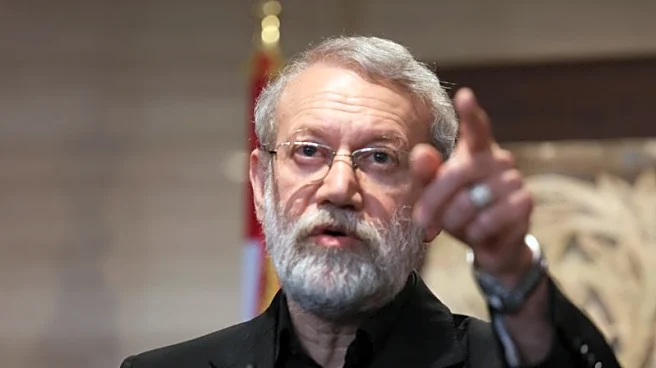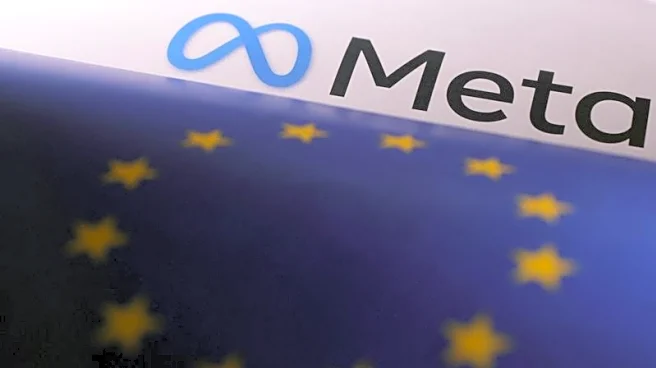Rapid Read • 7 min read
British singer Jess Glynne has expressed her disapproval of the White House's use of her song 'Hold My Hand' in a social media post related to immigration enforcement. The post, which appeared on the White House's official X feed, featured footage of undocumented individuals being deported by ICE, set to Glynne's upbeat pop song. Glynne took to Instagram to voice her disgust, stating that her music is meant to promote love and unity, not division or hate. The post has sparked controversy, with actress Zoë Lister-Jones also questioning the use of her voiceover from a Jet2 ad in the White House's post. The incident follows President Trump's recent authorization of $170 billion in spending on border and immigration enforcement, making ICE the highest-funded law enforcement agency in the federal government.
AD
The use of popular music in political contexts can have significant implications for artists and their public image. Jess Glynne's reaction highlights the tension between artistic intent and political messaging. The White House's use of her song in an immigration enforcement context may affect public perception of both the artist and the administration's policies. This incident underscores the broader debate over immigration policy in the U.S., particularly in light of President Trump's substantial funding increase for border enforcement. The controversy may influence public discourse on the ethical considerations of using art in political campaigns, as well as the administration's approach to immigration.
The White House has not yet responded to requests for comment on the use of Glynne's song. It remains to be seen whether the administration will address the backlash from artists and the public. The incident may prompt further scrutiny of the White House's media strategies and its impact on cultural and political narratives. Artists and advocacy groups may continue to challenge the use of creative works in political contexts, potentially leading to legal or public relations actions.
AD
More Stories You Might Enjoy












